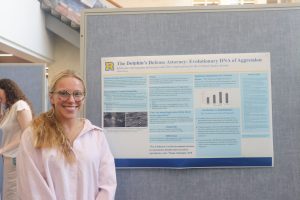This year’s Global Peace Film Festival is set to include numerous films which discuss issues of international concern, with one of the most highlighted documentaries being Egypt: The Story Behind the Revolution, directed by first time filmmaker Khaled Sayed.
Sayed has been in the USA since 2000, but was born in Alexandria, Egypt, and lived in Cairo until 1999. He went to school at San Francisco State University to study multimedia, and has worked for cnet.com and websites for UCSB. He has also worked editing short films, both documentaries and fiction.
The film chronicles the Revolution by giving the viewer a firsthand look along with opinions from Egyptians who were involved in the overthrow of President Mubarak.
Essentially, the film serves as a glimpse into what the American — and even the Egyptian — media has not exposed. It addresses the way the Revolution was portrayed in Western media, coverage which Sayed simply compares to entertainment.
The Internet and social media ended up playing integral parts in the Revolution, both through their use and nonuse. Thanks to social media, before the Revolution people were able to report on how they felt about everything online.
Still, the Internet should not be credited for the uprising. Sayed states, “the government of Egypt cut all Internet and phone lines as soon as people were in the streets! So for me, it was all made possible by the people. It helped that everything was cut because everyone started talking to each other. People need a physical space to revolt, not a cyberspace.”
In terms of Sayed’s motivation behind making the film, he stated, “I’ve always wanted to make a documentary on Egypt, but I really had nothing to say about it. No one wanted to talk about politics, no one wanted to speak up about the issues there. I just wanted to tell stories, but specifically in documentary form because they are more real.”
The film depicts a reality that is not oft en shown, and because of the Revolution’s prevalence, it was the perfect vehicle to make people think and alter their views.
As the filmmaker stated, he wanted to make known that “what I was hearing from the people at home, in Egypt, on the phone, was not what I was seeing in the news here in the U.S. I wanted to give the people of Egypt a voice and shine light on the events.”
Sayed encountered many obstacles while filming during the Revolution, particularly with the military, where he was arrested and detained. Fortunately, they were not able to operate the camera and thus, could not view the footage. After seeing Sayed’s American passport, however, they deemed him to be no threat and released him.
Sayed’s hopes for the film are that people will walk away with an understanding of why Egyptians were driven to revolt and remove the old regime and show the journey of the 18 days that the people of Egypt struggled to remove Mubarak.
A year before the events, people generally sounded unhappy and angry. Now, the fi lm documents Egyptians as having a sense of pride and achievement; however, these feelings are accompanied by a looming uncertainty. Mubarak had been removed, but now what?
Sayed will work to answer that question in his next endeavor, which will be a follow up to this film. He plans to return to Egypt in November in order to “document people’s feelings about the first democratic regime of Egypt.”
As an American citizen, Sayed expresses his joy, stating that he feels “very happy the people revolted against the old regime. I’m excited about the people’s stories. I feel like I have gained a new sense of pride and patriotism for my country. I have hope that things can change!”
















Be First to Comment